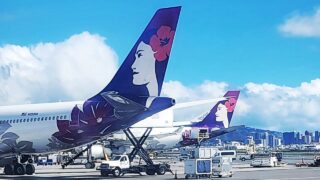Maui’s plan to eliminate thousands of vacation rentals is already collapsing, and nobody knows what comes next. The bold housing promise that followed the recent year’s fires has softened into a maze of carveouts, new hotel zones, and rezoning proposals that will likely satisfy almost no one. What began as moral clarity and urgency is ending in confusion.
One longtime visitor who has rented the same Kihei condo for fifteen years said she now feels like she is booking into “a legal minefield.” Another wrote, “We supported Maui after the fires. Now we’re being told we’re part of the problem.” These voices echo across hundreds of similar comments from people who once called Maui their second home.
What’s changing and why it matters.
When Mayor Richard Bissen introduced Bill 9 last year, the goal was sweeping. The measure would phase out more than 7,000 apartment-zoned vacation rentals that had operated for decades under an old exemption. The idea was to convert those units into long-term housing and rebalance the island’s dependence on tourism.
A county investigative panel has flipped the script entirely. Instead of banning rentals, the group now wants to create two new hotel zones and move roughly 50 properties, about 4,000 units, into those categories, letting them operate indefinitely as vacation rentals. That’s nearly half of the 7,000 units targeted initially.
This would allow them to keep operating as vacation rentals even after Bill 9 becomes law. The rest of the properties would, in theory, convert to long-term housing, but nobody can explain how or when that would happen at this point.
For owners, this proposal feels like a lifeline. For many residents, it feels like betrayal. The housing crisis that sparked this law has not eased, and county leadership now appears to be retreating from its own solution long before it even begins.
What visitors are seeing now.
Many longtime Maui travelers say they no longer know whether their condo will even be a legal one after this. One couple who has visited every winter since 1998 said their last trip felt “transactional, like we were tolerated, not welcomed.” Another frequent visitor wrote that checking into their usual rental now feels like trespassing.
These comments are not isolated. They reflect a growing unease among travelers who once viewed Maui as their most reliable escape. The confusion over the future of Maui vacation rentals has only made that worse.
The shift is also visible on the ground. Visitors talk about rising fees, new parking rules, and subtle signs of fatigue among hotel and restaurant workers. One guest who stayed in West Maui this summer said, “The aloha spirit isn’t gone, but it’s harder to find.” That sense of uncertainty is starting to reshape travel patterns across the islands, with some guests saying they are exploring Kauai or the Big Island instead.
A crisis without direction.
The debate over vacation rentals has exposed Maui’s deepest divide. On one side are those who believe tourism remains the island’s only true economic engine. On the other side, some residents believe it is the same engine that broke the island in the first place. Neither side has a plan to replace what’s being lost.
The Lahaina and Kula fires displaced thousands of people, and many are still waiting for permanent housing. The idea that small condos with high fees and limited parking could absorb families of four was never realistic. Yet leaders kept repeating that narrative until it collapsed under its own weight.
As one resident wrote, “The county has been absent for thirty years. They have worked against affordable housing in every way possible.”
One longtime visitor who has stayed in the same complex for twenty years wrote, “I’ve watched Maui try to fix this for decades. Every time, they choose the money.” That frustration captures what many see as the real story behind Bill 9’s slow unraveling.
The economics behind the retreat.
Vacation rentals generate millions each month in county taxes and support thousands of hospitality jobs. Yet one condo owner testified that eliminating them will not create affordable housing, only shift those units to wealthy cash buyers who will live in them part-time and pay lower resident tax rates. The policy may end up solving nothing and still costing everything.
Tourism fatigue, however, is just as real. Residents point to crowded beaches, clogged roads, and the growing sense that Maui has become unaffordable even for the people who call it home. What was supposed to be a reset after the fires has instead turned into another round of political stalemate.
The irony is impossible to miss. The same county that couldn’t build affordable housing for decades now claims it can rezone thousands of units in under five years, a timeline that would outlast the current council and possibly the current mayor. Even if the plan works on paper, it may not exist in practice.
A message that keeps shifting.
Maui’s leaders say the goal is still to protect housing for locals, but the new proposals sound more like a zoning reshuffle than a real housing plan. The Temporary Investigative Group’s carveouts would rename thousands of units rather than transform them. For now, uncertainty rules, and both residents and visitors are tired of guessing what comes next.
In earlier coverage, Maui Vacation Rental Ban Collides With New Hotels pointed out the contradiction of restricting condos while approving new luxury developments nearby. That contradiction has only grown louder. The temporary relief for many rental owners may steady one corner of the market. Still, it reinforces what both visitors and residents are saying: Maui’s leaders will bend almost any policy before risking tourism revenue.
What this means for travelers booking now.
Anyone with a future Maui condo reservation is obviously concerned, although in reality nothing will change in the next few years. The units carved out as “hotel zones” won’t even be decided until next year at the earliest, and even then, property-by-property rezoning could take years to resolve. That leaves travelers booking blindly, owners unable to commit, and Maui’s reputation as a reliable destination continuing to erode.
Council review coming in November.
Any real change now seems sure to take years. Rezoning thousands of units one by one could stretch well beyond the current council term. The delay alone is enough to keep investors waiting and visitors wondering.
Hawaii cannot ban its way to affordability, and it cannot build its way out of grief. This latest compromise may be politically convenient, but it is poised to satisfy no one. Residents see another promise diluted. Visitors see another sign that the island is drifting.
Maui’s vacation rental crackdown may be softening, but so is confidence in what the island stands for. The danger now is not just losing short-term rentals. It is losing direction altogether.
What’s your take on this latest turn? We’d like to hear from you in the comments below.
Get Breaking Hawaii Travel News







This is at best a bad Idea. For 50yr, West maui has always had a larger presence of local single and couples looking for housing for tourist biz ( typically around 50% of pop. ), from boat workers to restaurant staff. To eliminate all of this housing is a crime against locals looking for badly needed housing at reasonable pricing. Now we are seeing housing (finally) going up in West Maui burn zone, but the majority look like they have been maximized for room rentals, again! Same problem before the fire, rooms the size of closets (that were usually illegal and dangerous) were going for $1,300 to $2,000 a month. Who knows what these rebuild owners are hoping to get, and with the lack of other available units I would venture to say $2,000 + for similar rooms. This fire hasn’t reset anything except land owners being able to rebuild with more (illegal) rooms that will be higher priced due to demand not meet through bill 9. Shame on all involved with this crime against Maui needed housing!